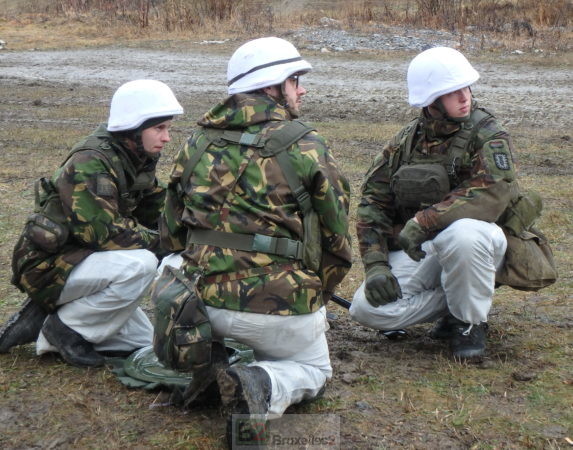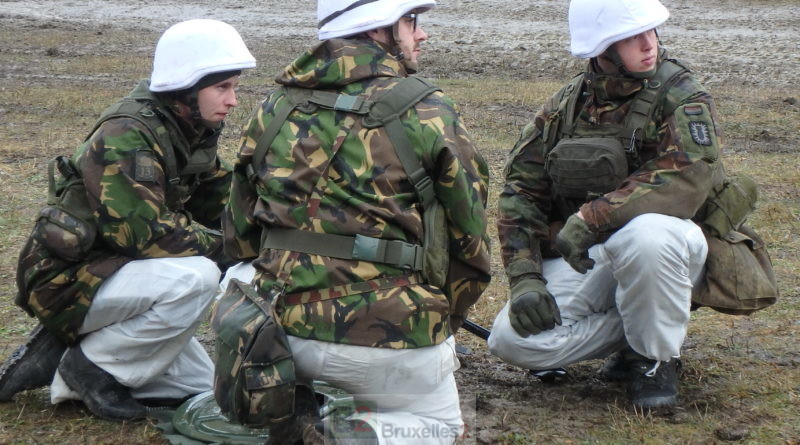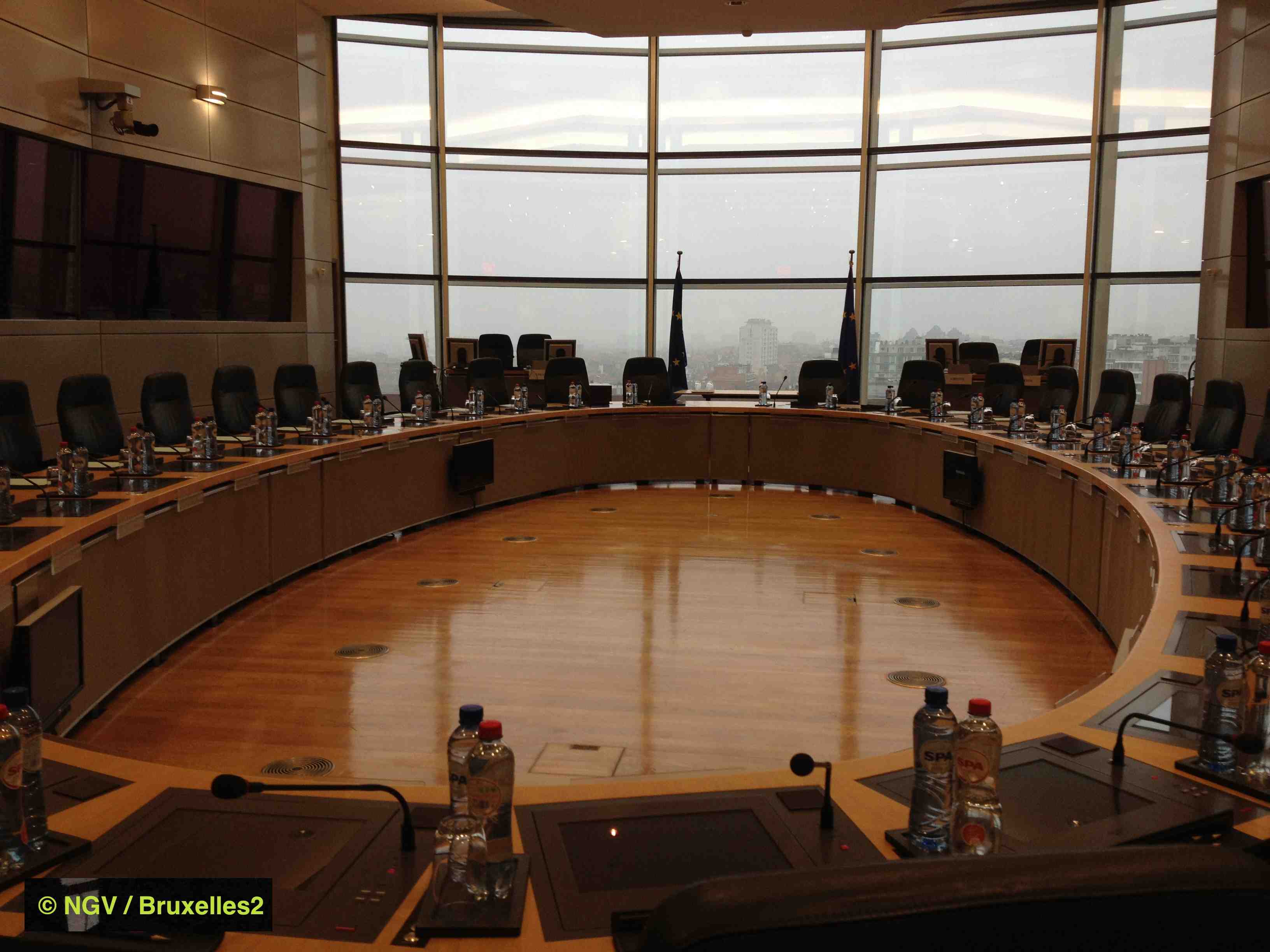What does consistency mean? New defense keyword for Europeans
(B2) European structures have found a new word to chew on: coherence

It's one of the words being debated at the European Commission on Tuesday (February 11). Josep Borrell, the High Representative has also proclaimed it loud and clear in front of the press (read: Defense policy. Coherence, at the Commission and elsewhere, is me! (Josep Borrell)). EU defense ministers also discussed it last December.
The new European karma coherence
The European defense adores these key words which it adores for a few months or a few years and repeats to satiety. Then they disappear without a future, as if inadvertently. We thus had:global approach' (global approach) then the integrated approach', THE 'pooling and sharing' (sharing and pooling), the 'global strategy' and today... coherence, before the next one which will appear in a few months: the 'strategic compass' (strategic compass). The principle is, it seems, to find a word as abstruse as possible to put in it what you want. However, this word has a fairly precise meaning.
What does consistency mean?
Under this term, we want to combine the various initiatives taken in recent months: the permanent structured cooperation (PESCO), the European defense fund (FEDef), the annual defense review (CARD)... with the old initiatives (plan of defense capability, operational HQ). Not that they are not each useful, but in order to make them better interlocked with each other. It's about better sequencing them in time, like a gear. A job that can seem bureaucratic. But where are the concrete, philosophical, economic and geopolitical issues also hidden?
Behind a word of real stakes?
1. An intergovernmental or community policy?
First issue: who steers the defense system at European level: the Member States or the Community institutions? A question that did not really arise twenty years ago. The answer was invariably: Member States. At best, the European institutions are there to support a few techniques, financing or coordination. Today, with the arrival of the European Defense Fund and the intervention of the Community budget, the question deserves to be asked again and the answer is no longer as clear-cut as in the past. The Member States, of course, are the pilots of the device. But the European Commission (and the European Parliament, the Court of Justice of the EU, the Court of Auditors, etc.) also want to have their say... From being purely intergovernmental, European defense policy is becoming mixed. As Josep Borrell says: “ The essential of defense cooperation belongs to the intergovernmental domain (I underline essential). In fact, the good old diesel engine is replaced by a more subtle hybrid engine. Perhaps more efficient in the long term but more complex to manage today.
2. The High Representative or the Commissioner?
Added to this philosophical question is an institutional or administrative question: who steers the system at European level? The High Representative (Josep Borrell) — who is in charge of external relations and is the head of the European Defense Agency — or the commissioner in charge of the 'defence' portfolio (Thierry Breton) — who has at his disposal the brand new directorate General of Defense of the European Commission? The answer seems clear cut since yesterday. It is the High Representative of the EU who is the captain on board. And if you had any doubts, the Spaniard says it himself: As High Representative, I have an important role in ensuring consistency between European Commission instruments and intergovernmental policies ". B2 had direct confirmation of this from a well-connected diplomat: " It is obvious that it is up to the High Representative to coordinate " politics.
3. A Defense Fund, distributed equally, or focused on closing gaps?
Third issue: what objectives should the European Defense Fund meet? A very concrete question which has very precise consequences at the industrial and economic level. More specifically, should the financial manna available to the European Commission be distributed more or less proportionately among the Member States, so as to preserve, or even encourage, an industrial presence in all countries? It is an industrial objective of which many countries are quite fond, which have little or no defense industry. Or should we finance only strategic projects, selected on the shutter, because they fill capacity gaps? If so, which capability gaps should be filled first: those identified by the EU's capability development plan, aimed at responding to its own crisis management operations; those determined by the Euro-Atlantic Alliance, which has one main objective: the territorial defense of the European continent. The question is officially settled: the European Defense Fund responds to the priorities defined in the capability development plan set by the Member States. But the devil is in the details. And there is intense pressure from several Member States not to have a Fund focused on a few priorities, but spread over a set of priorities.
4. A Europe at the service of NATO or the reverse?
Behind this distribution of funds slips another issue with more geopolitical contours. Who has control of the European sky: the Europeans or the Euro-Atlantic? Clearly, should we review (or supplement) the Berlin Plus agreements — through which the Alliance made its military command infrastructure available to timid Europeans — by adding an addendum where the European Union makes its financial and legislative powers available objectives of the Alliance. The debate has only just begun. But we can already see that the release of a budget line in the future budget framework (MFF 2021-2027) for 'military mobility' corresponds strictly to a NATO objective - territorial defense - which effectively serves the European continent but in its more Euro-Atlantic framework than European policy. Similarly, one or two European funds came to support Alliance projects (demining in Bosnia and Herzegovina). A very concrete test of the EU-NATO rapprochement that is taking place.
Consistency is therefore not just a 'little' word. Is it enough? Is Europe as coherent as it wants to say? To be continued...
(Nicolas Gros-Verheyde)


Excellent article…
Coherence figures in many places in the treaties.
This remains a nebulous concept.
In my book Claude Blumann and Louis Dubouis “EU institutional law” Lexisnexis 7th ed., 2019, I devote an entire development to this principle. p. 139 et seq.
Sincerely.
Claude Bluman